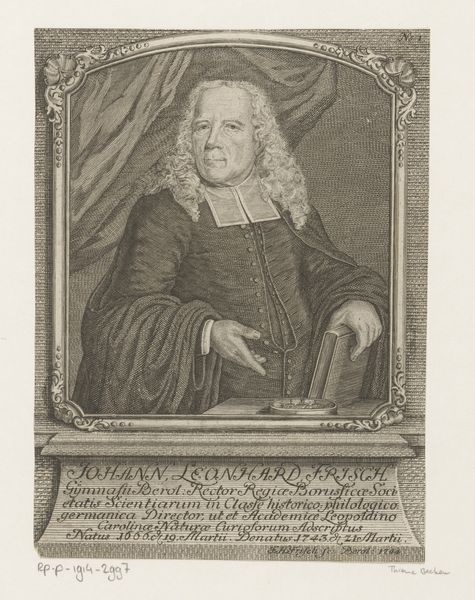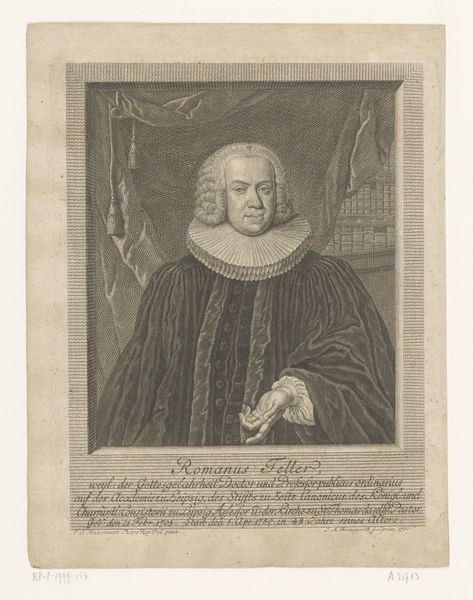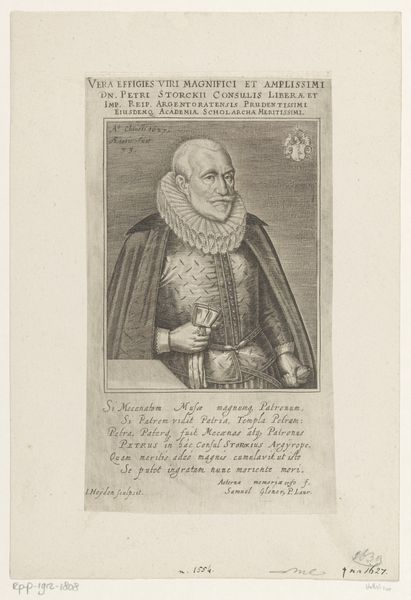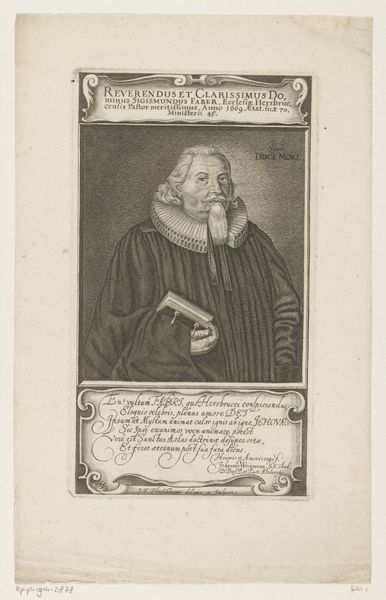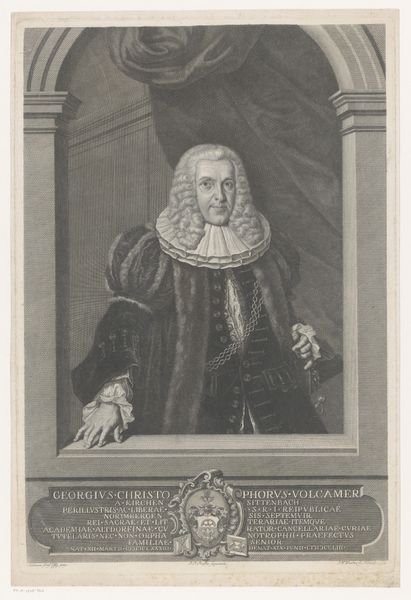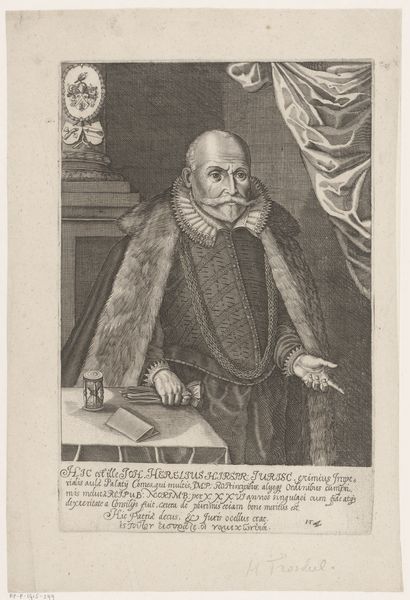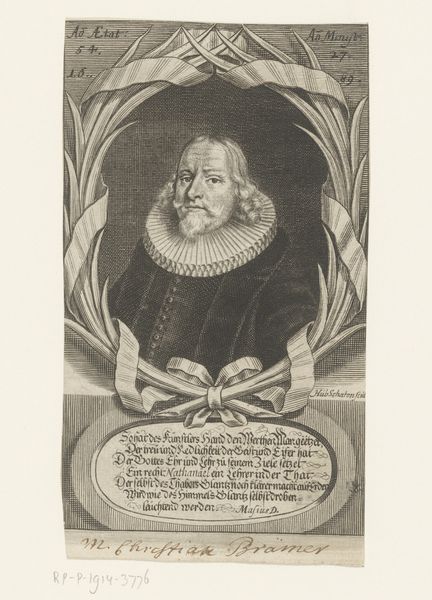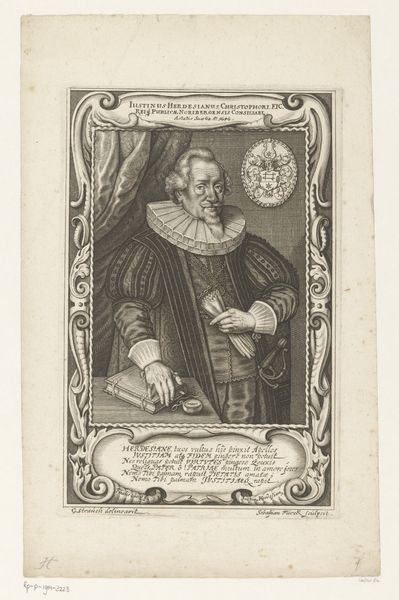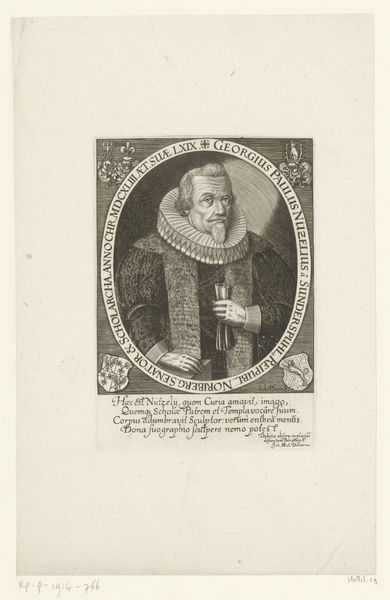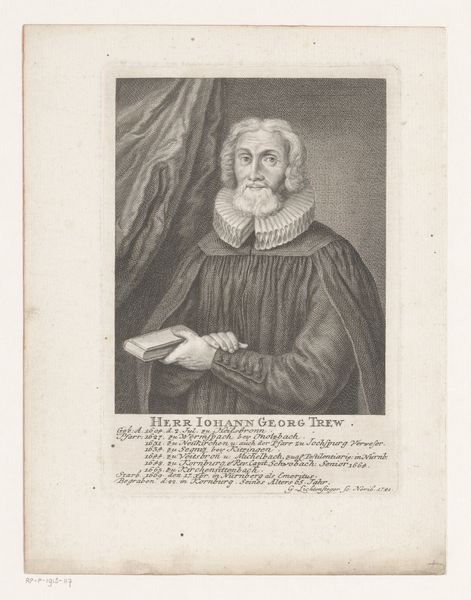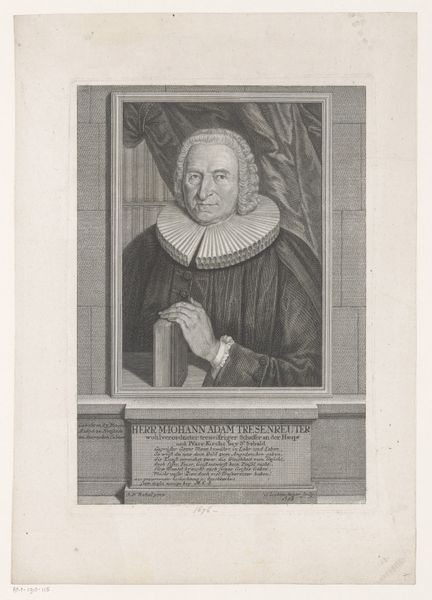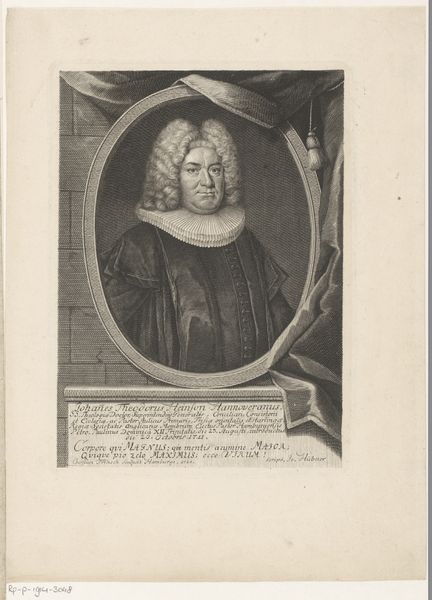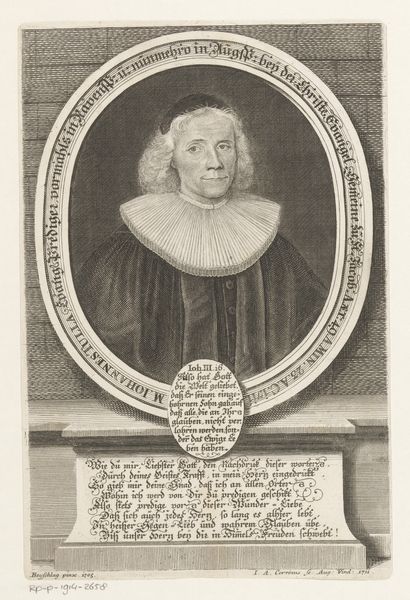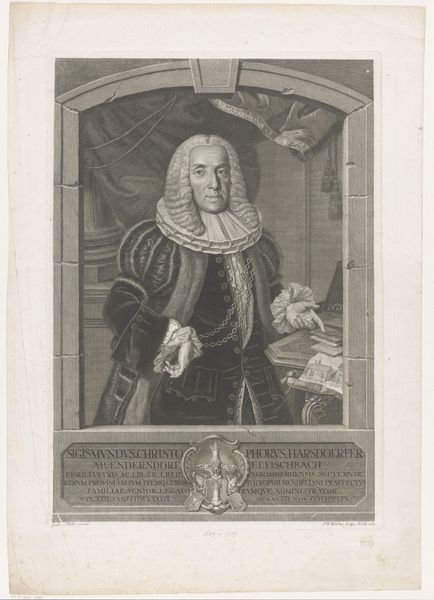
print, engraving
#
portrait
#
baroque
#
dutch-golden-age
# print
#
engraving
Dimensions: height 262 mm, width 156 mm
Copyright: Rijks Museum: Open Domain
This is Georg Fennitzer’s 1693 portrait of Andreas Bergmann, made with engraving on paper. Engraving is an intaglio process, meaning the design is cut into a metal plate, and the incised lines hold the ink. The plate would have been meticulously worked using a tool called a burin, requiring immense skill. Notice how the density of lines creates shading, giving volume to Bergmann’s face and clothing. The paper itself, likely handmade from rags, would have been pressed firmly against the inked plate, transferring the image. The crispness of the lines speaks to the pressure applied. The very nature of engraving, as a reproducible medium, speaks to the rise of print culture and the dissemination of images in Fennitzer’s time. Consider the labor involved, from the preparation of materials to the mastery of engraving techniques. This portrait isn't just an image, but a testament to skilled craftsmanship and the social context in which it was produced. By appreciating the material and process, we gain a deeper understanding of its cultural significance, blurring the boundaries between art, craft, and social history.
Comments
No comments
Be the first to comment and join the conversation on the ultimate creative platform.
